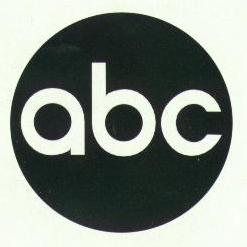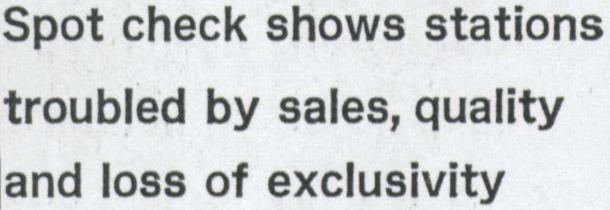 |
Splits Into 4 Separate News Networks |
|
 On January 1, 1968, ABC Radio split it's network operation into 4 demographic networks ... American Contemporary Radio, American Entertainment Radio, American Information Radio, and ABC FM Radio. The 4 new networks started out with approximately 600 affiliated stations. Advertising rates according to Broadcasting Magazine $2,500 a minute on the Contemporary Network, $1,500 on Information Radio, $1,250 on Entertainment, and $650 on the FM Network. According to the January 1, 1968 of
Broadcasting Magazine... "The FM Network will present five-minute news broadcasts at 15 minutes after the hour. The Entertainment Network will carry five-minute newscast, a 15-minute segment by Paul Harvey and 50 minutes of the Breakfast Club. The Information Network will provide the heaviest diet of news, supplying blocks of 10-minute, five-minute, and three-an-a-half-minutes of news and sports each day." "In addition, all four networks will provide various public service and religious programs, prefed for delayed broadcast." ABC Radio President Walter A Schwartz credited the concept of the four news networks to Ralph Beaudin, group vice president, radio, ABC. Beaudin was the first station manager at KQV in Pittsburgh when the station was converted to top-40 in 1958, Beaudin later moved on to WLS in Chicago before his promotion to group vice president, radio, ABC. According to the January 1, 1968 of Broadcasting Magazine... "It was Mr. Beaudin's belief that conventional networks faced the problems of clearance because there was more product available than was desired by stations. This in turn, led to sales problems. Mr. Beaudin reasoned that a line-up of similar stations could provide advertisers with 'a national target audience.' " "Mr. Schwartz pointed out that each network will represent about 40% less programing than was formerly on ABC Radio but the four new facilities combined will carry almost 300% more programing." The 40% drop in network programing allowed ABC Owned & Operated stations like KQV , WLS and WABC to drop long running programs like The Breakfast Club. At KQV in Pittsburgh, it helped usher in the "More Music" era. Also gone was the hour long NewsScope at 6:30 PM. |
| The
FCC . . . The change to 4 separate news networks required approval from the FCC. On December 29, 1967 , the FCC granted ABC a restricted waiver of the chain-broadcasting rule to permit the four-network plan to operate as planned. The FCC said "The proposal merits encouragement as a new and imaginative approach" to radio networking. ABC was required to submit a comprehensive report on the proposal every six months. |
| Overlapping
Problems . . .
The change to 4 separate news networks did cause some problems. With the 50-minute Breakfast Club being fed to the Entertainment Network at 10:05 EST (except for the in western states where ABC allowed delayed broadcasts to avoid being on in drive-time) five or ten minute of program overlaps occurred in some markets where the network had multiple affiliates. A rule waiver had to be granted or a violation of the chain broadcasting rule would have occurred. The FCC's conclusion according to Broadcasting Magazine... "took note of the drastic changes that have overtaken network radio since 1941 when the chain broadcasting rule was adopted. The rule's primary purpose was to bar NBC from continuing to operate two full-fledged networks, the Red and the Blue. 'Networks no longer dominate the radio field economically or as program sources as they once did,' the commission said" |

 According to the January 15, 1968 issue of Broadcasting Magazine, after two weeks of on-air operations of the new radio feeds, reactions ranged from 'very pleased' to 'negative'. "Several indicated that while they haves signed for one of the services, they are as opposed to the concept now as they were the week the plan was announced." "Others say they like the new service better than the old ABC Radio Network, and still others have yet to make up their mind, since many have never been affiliated with any network." "Objections then, as now, centered on the loss of exclusivity in the market, since under the plan, more than one station in an given area can affiliate with one or another of the network services. One long term ABC affiliate - now prevented from using the words "ABC Radio" simply because such a network no longer exists - said that he found the lack of exclusivity acute." "We spent years selling our network identification and now there's little to differentiate us from the station down the block. What does American Entertainment of American Information mean to our listeners?" he asked." There was also a question of quality. From one affiliate "The news and features are still a little rough around the edges. We were led to believe there would be stronger, more complete news, but this apparently isn't so. I have a feeling there's been a degradation in quality." |
| Special thanks to Bob Gibson for providing the articles from Broadcasting Magazine used for this section of the website ... Jeff |